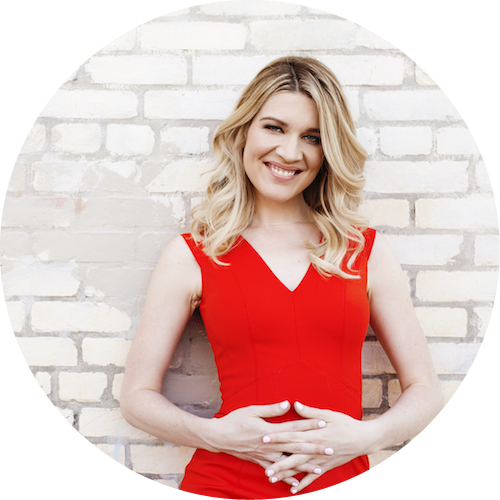An Intimate Q&A About Introverted Alpha Programs
Have you ever wondered about how our Introverted Alpha programs came to exist?

If you have, you’re about to have your answers!
I’m Sara, owner of Introverted Alpha, and one of our team members had a wonderful one-on-one exploration call with a potential client recently. During that call, that client (he enrolled and started his program journey with us!) asked such great questions that I decided to have those 18 minutes transcribed.
I wanted all of you to be able to read it and get your questions answered. Enjoy!
For context, go ahead and familiarize yourself with our 12-week dating coaching program, Launch Your Dating Life, first. Then once you’ve gotten an overview of that, you can come back to dive into these great questions and answers.
In addition to this transcription, I created an FAQs page here. Between all of this, you will get a great in-depth understanding about what we do and how we do it here at Introverted Alpha!
Let’s dive in! (Please note that the subheadings are for organization only. They were not words exchanged in the conversation itself.)
How did you get into this niche?
Something I’d love to hear a little bit about is how you got into this particular niche, and how you iterated on and built the program over time, and how you think about the process that you’ve built.
A seed planted early
I love that question so much. The original founder of Introverted Alpha considered the seed planted when she was doing academic tutoring on and off, starting in her teens. She did tutoring on and off for over ten years.
The way she approached it was that we have the material to cover, and that was important, but what was really important was that the students she tutored were able to build their confidence in themselves so that they could do the material and that they could have fun with the process as well.
Those were the most important things. If the students got those things down, then the learning will happening naturally. She tutored small kids up to adults who were older than her, both men and women, boys and girls.
As time went on, she started to notice that she really liked working with very thoughtful, analytical men. Even though she always did, she didn’t know how much she noticed it or identified it at the time. But looking back, she always really enjoyed that.
Coaching school
She ended up enrolling in coaching school, and she went through several months of training and practice. During that time, her coaching mentors told her that she needed to find a specific niche because she needed to help a certain group of people with a certain problem in order to specialize in that and really be able to help.
What she was learning in coaching school was very helpful for her personally and in her own dating life, so she decided that she wanted to teach that. Through several more conversations, she further realized that she really wanted to teach men.
Apprenticeship
After graduating from coaching school, she reached out to a dating coach whose work she admired. He had a small company, a lot of people who wanted coaching, and he just wasn’t available to do it all. That’s when she came on as his Head Coach.
She did that for a year and a half and coached all kinds of men. They were just a whole big variety of personality types, but she loved the introverted ones that were really logical and analytical and introspective. They had good hearts, they were thoughtful, and they wanted to do the right thing.
She appreciated that so much about them, and she found that she could really communicate well. The way she taught really worked for them, and it was amazing. They were so relieved and happy that they didn’t have to be a jerk to make this part of their lives work.
She knew from day one when she started working with the coach she first worked for that she was going to make her own coaching company. She told him, “I’m here to learn from you and help you grow your success, but I’m also here to learn and I’m going to make my own coaching company one day.”
Business program
Then a mentor of her, Ramit Sethi, came out with a business program in the spring of 2014 and she enrolled in that. She didn’t expect to start Introverted Alpha so early. She didn’t even have a name for it or even really much of a concept or the specifics of it.
She went through Ramit’s program in the spring, and then by the summer, Introverted Alpha was something that was happening. That summer, she wrote our ebook, which we still have to this day. Every time she considered changing it, she realized just how much our readers loved it, so we kept it this whole time.
Everything really took off by the end of 2014, and it’s just been growing ever since. In the process, she learned that she really enjoyed business. She loved creating a system and structure for a free-flow to happen, and to hire and train people to come on as a part of the Introverted Alpha team.
Shaping a culture
Her goal was to shape the culture of the company through her own leadership and the little and big things she could do to make everything run really smoothly and pleasantly for everyone.
For years, she had a tendency to add in a bunch of extra stuff and a lot of extra meetings, but she realized over time that we just didn’t need any of that. If there’s a really tight bond with the team and everybody is clear on what there is to do, she found that it goes really beautifully and you don’t need to do all that extra stuff.
Once things became really streamlined, it opened the door to reach a lot more guys. What was surprising to her was that the quality of men really just shot up over the years. We started seeing more clients who had a really great outlook on life, took personal responsibility for themselves, and had developed success in other parts of their lives. We always had clients like that, but these days that’s all of our clients, so that’s been really wonderful to see.
Why so many great clients?
What do you attribute that to? I’m always interested in other business models. What do you attribute to that shift?
Clearer communication
As she became become clearer and cleaner and matured in her communication, both with her visual communication on the website and also with her my written communication, that helped her connect with our clients on an even deeper level and in a way that really resonates fully with them. Her own process of her communication skills and confidence and presence as a woman who knew her clients and was able to connect and communicate with them really effectively was what made all the difference.
What are the coaches like?
Awesome. What are the coaches like, and what are the characteristics you look for in them? What’s the typical level of experience? Is there anything you think I should know about the activity of the coaches and how I’d be interacting with any of them?
What I look for
We currently have three coaches on our team and we are so thankful for them.
We have had five coaches over the years who were amazing, but these current coaches are even better. That’s the theme of this whole thing, that things just keep getting better and better as time goes on.
What we look for in coaches when we hire them is I look for someone who’s not done coaching per se, because I don’t want them to come in with all their own ideas of how it works.
I want them to be clean slate for me to train, but I want for them to have background in working with people one-on-one.
Some of them come with a therapy background, or a background in just learning a bunch of different things. For example, nonviolent communication, or they’ve gone through a bunch of workshops, different certifications and things that they’re so interested in.
They also come from sales, just communicating with people and understanding them.
And so I look through that experience in those areas, but not in life coaching because there are just so many fixed ways of doing things over there. I do things really differently, and I want my coaches to be clean and fresh for me to train.
Their voices
The other thing I look for is that when I hear their voice, I feel so good.
The most recent coach I hired, when I heard her voice, she just said one thing and I was like, “Oh my gosh, you’re going to be so good for our guys.”
I said that to her in the interview.
I was like, “This is not a traditional way to interview. Your resume was amazing, and then here you’ve just said one sentence. I think this is really right.”
Of course, we went on to do the interview like normal. She just has such a calming voice, and that shows me the character that she’s built within herself because you can’t have that voice unless you are really lovely inside and you’re at peace with yourself.
I could hear that in her, and this is just on top of her beautiful application that I had already read, and that I had gotten to know her through.
So the voice is really important because it says a lot, and it’s important for the process because if someone’s calm and peaceful and intuitive and interested and compassionate and aware, that makes the best coach for my team.
How much attention does each client get?
All right, Makes sense. What’s the number of clients and the workload that a coach has at any given point? And what’s the level of attention, so to speak? How do you think about that?
Lots of spaciousness
Yeah, so, a lot of attention per client. It cycles through.
My other coach has what I would consider a full load, which is like 15, that’s full. That’s just full. And then, the other coach has a little less than half of that.
What I’ll do is if they’re both at 15, then there’s either a waiting period or I bring on another coach if that seems like the right thing.
Or we just wait because even though they can technically do more than 15, I want it to feel spacious for the coaches and for all of our guys.
Space is so nice, and that’s one thing I really enjoy about running a business too.
I value that and I work it into my decisions. I don’t think it’s necessarily a great common thing to work spaciousness into a business, but I really value that. In fact, that is one of my core values; spaciousness is a big value of mine.
Quick response time
Also, in addition to the sessions, there are session recordings, which is another thing that is very helpful for our clients.
They love it. Because not only do you get to reference your sessions; you don’t have to worry about taking notes because you can listen later.
Some guys treat it like that, and you also get to hear your own development, the questions that you ask, the things that you say developed, and you get to hear your voice develop, which is very fascinating and awesome.
So the recordings and then also, you can email your coach anytime between sessions with an update or a question. You can send her a screenshot of the text conversation you’re having for feedback, and she’ll be quite responsive.
What my thing is with them is that, during the weekday, one to 24 hours response time, and then over the weekends it can be a little longer, though they still tend to be responsive over the weekend.
I just want them to know that they can have some space. But if you ever need something, then just put “urgent” in the subject line and it will be treated as such.
What if people have different paces?
Mostly out of curiosity, is the program really designed for 12 weeks? Do you see some people staying on and maybe diving into other areas a little bit deeper? How do you structure stuff like that, if at all?
From 8 to 12 weeks
So at one point the program was eight weeks, and that felt too short. The clients did well, but there was sometimes a feeling of pressure that they felt, and I didn’t want them to feel that. It’s not necessary.
So I made it into 12 weeks, which is just much, much nicer. And sometimes somebody will stay in a module or in an area for a long time.
Sometimes, guys stay in the first module for like a month-and-a-half because they know that they have all the rest of the material for however long they want it, and they just want to really go deep with that.
Then they will either go on their own with the other models that they have after their 12 sessions in their 12 weeks or in the case of biweekly sessions, then after Week 24. Or they continue coaching on a month-to-month basis.
We have some guys who just keep going with their coach on a monthly basis or a weekly or biweekly basis, or they go and implement on their own. They can always come back for just pure coaching after they’ve done the program.
Okay, great.
But there’s that room to dive into any module you want.
Your session every week is not necessarily about that module. You just have a corresponding session for each module, but life happens in the order that it happens. For example, you’ll have dates before you get to the module on dates.
Why over the phone instead of in-person?
One high level concern that have, I’d curious to get your thoughts on this. With my executive coach and other things I’ve done, it is typically in-person rather than remote, and I’m curious how you think that affects the coaching dynamic.
Special mode voice-to-voice
Yeah. I’ve always worked remote. I did do one in-person event earlier this year, which was really fun. It was super, super fun. And I’ll do another one.
But as far as the day-to-day coaching, there’s something really special, actually, about being on the phone. You’re just completely unselfconscious because no one’s looking at you; you’re just with yourself.
You get to hear what your coach is saying, and you get to process it. It’s not social, which is what gives you that space.
Being in-person is a little bit social regardless of the context, compared to being on the phone in your own physical space.
It’s just a nice feeling that’s conducive for what we’re talking about and what we’re working through. So the phone is special in that way.
Now, of course in-person is special in other ways; being able to read other cues and whatnot. But the voice actually tells quite a lot: pauses and intonations and everything all communicate quite a lot.
That’s why it’s quite effective.
Then of course with the photos you send to your coach in advance of your first session, we get a sense of your presentation. So it’s all put together.
I’ve experimented with, rather than audio calls, actually having a video call. But it just seemed like it was more comfortable and just was better fit to do audio. So, that’s what we do.
Okay. I guess those were all the major questions that I had.
Now, back to you!
I hope you enjoyed reading through that snippet of our conversation. It was a lot of fun talking with him; didn’t he have awesome questions?
One thing he told me at the very end of our call is how helpful the audio client reviews were for him in deciding whether to book his call with us.
He joked that he figured, “Either these are REALLY good actors, or this is an incredible thing they’ve got going.”
Since no one can act *that* well, he figured by process of elimination that it was the latter. ;)
To listen to the reviews yourself (they’re free to listen to, and you can download them if you’d like), go here. These are four very engaging conversations with four clients, who all have quite different personalities and backgrounds.
And if you’re new here, make sure to download the ebook I mentioned above! There’s a reason it’s been around for nearly five years. I think you’ll love it.





